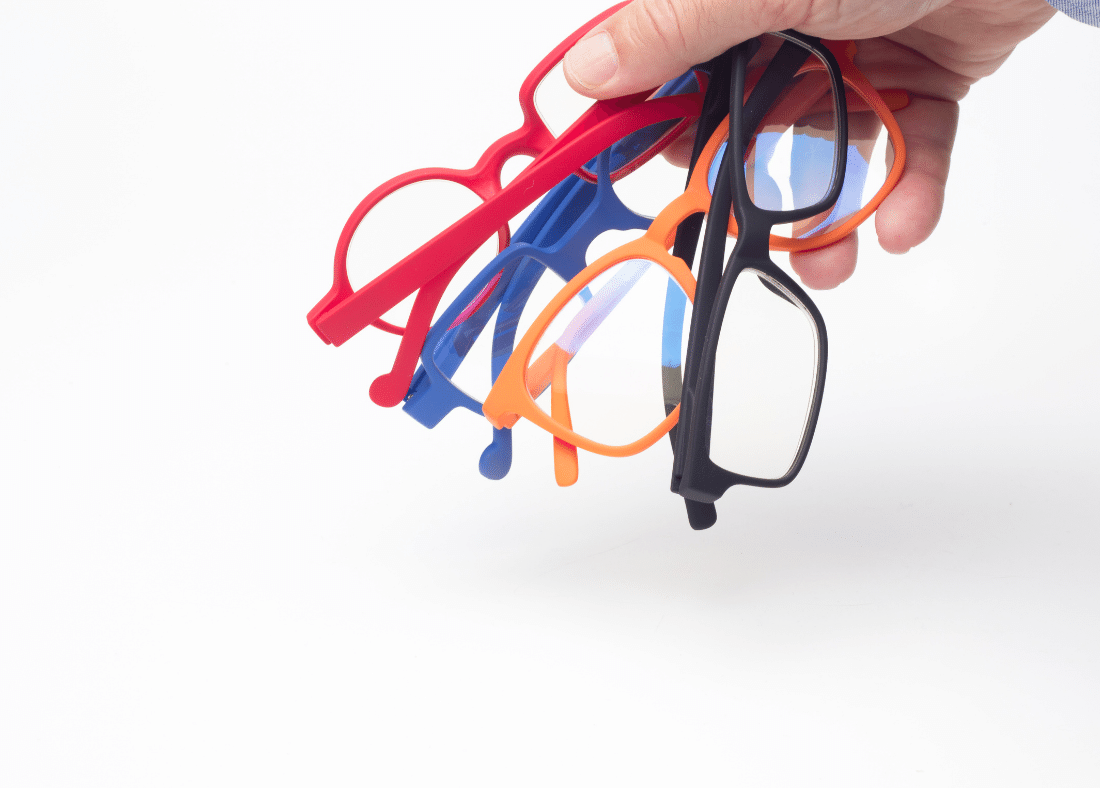Glasses Measurements: How to Read Frame Sizes
Andy Mant
Most people don't know this, but there are universal numbers on all frames that give you the measurements of those glasses.
These glasses frame measurements are helpful for you when you already own a pair of glasses that suit your face and feel comfortable to wear then you can use the measurement numbers when ordering new pairs of glasses.
How to Read Your Frame Measurements
- Look on the inside of the arm of your glasses frames for three numbers that have either a square image or dashes between them
- You start by reading these numbers from left to right
- The first number is the lens width measurement
- The second number is the bridge width measurement
- The third number is the temple length measurement
- Occasionally you might see a fourth number, which is the lens height measurement
What Do The Different Glasses Frame Measurements Mean?
1. Lens Width Measurement
The lens width measurement is also known as the eye size and is the widest horizontal width of the lens in your glasses; it is measured in millimeters (mm). The numbers you are likely to see will typically range from 40mm to 60mm.
2. Bridge Width Measurement
The bridge width measurement is shortest width between your two lenses and is the gap that will rest on top of your nose; it is measured in millimeters (mm). The numbers you are likely to see will typically range from 14mm to 24mm.
3. Temple Length Measurement
The temple length measurement is also known as the arm length measurement and is longest distance between the hinge and the end of the arm of the glasses that rests behind your ears; it is measured in millimeters (mm). The numbers you are likely to see will typically range from 120mm to 150mm.
4. Lens Height Measurement
The lens height measurement is the longest vertical height of an eyeglasses lens and is measured from the top to the bottom of the lens (excluding the frame); it is measured in millimeters (mm).
Final Thoughts
There are normally other numbers and letters printed on the inside arm of your glasses, which are usually the frame model name and/or the color of the frame.
Something else that is good to know is that two different styles of frames can have the identical frame sizes but may feel like they fit differently on your face.
We recommend also looking at these other resources when looking at which glasses to buy:
- The Face Shape Guide for Buying Glasses
- How to Measure Your Pupillary Distance
- Understanding the types of frames available
At BON CHARGE we share all these frame measurements on our blue light glasses product pages for you to see before buying any style:



